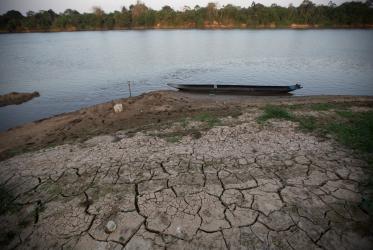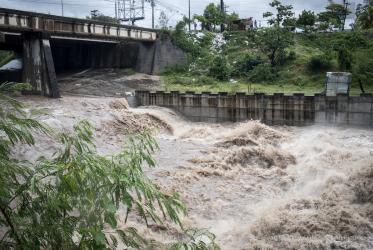Displaying 1 - 20 of 75
Unity is key when health crisis poses new challenges in Asia
28 February 2022
Brazilian ecumenical water network launched
29 July 2021
Global webinar will discuss environment, agriculture and water
03 December 2020
CCIA meets in Brisbane with focus on Pacific regional priorities
19 February 2020
“Economy of life” lifted up at special school in Indonesia
22 August 2019
WCC represented at G20 Interfaith forum in Tokyo
13 June 2019
WCC condemns massacre of farmers in Philippines
12 April 2019
Interfaith Rainforest Initiative expands
12 February 2019













